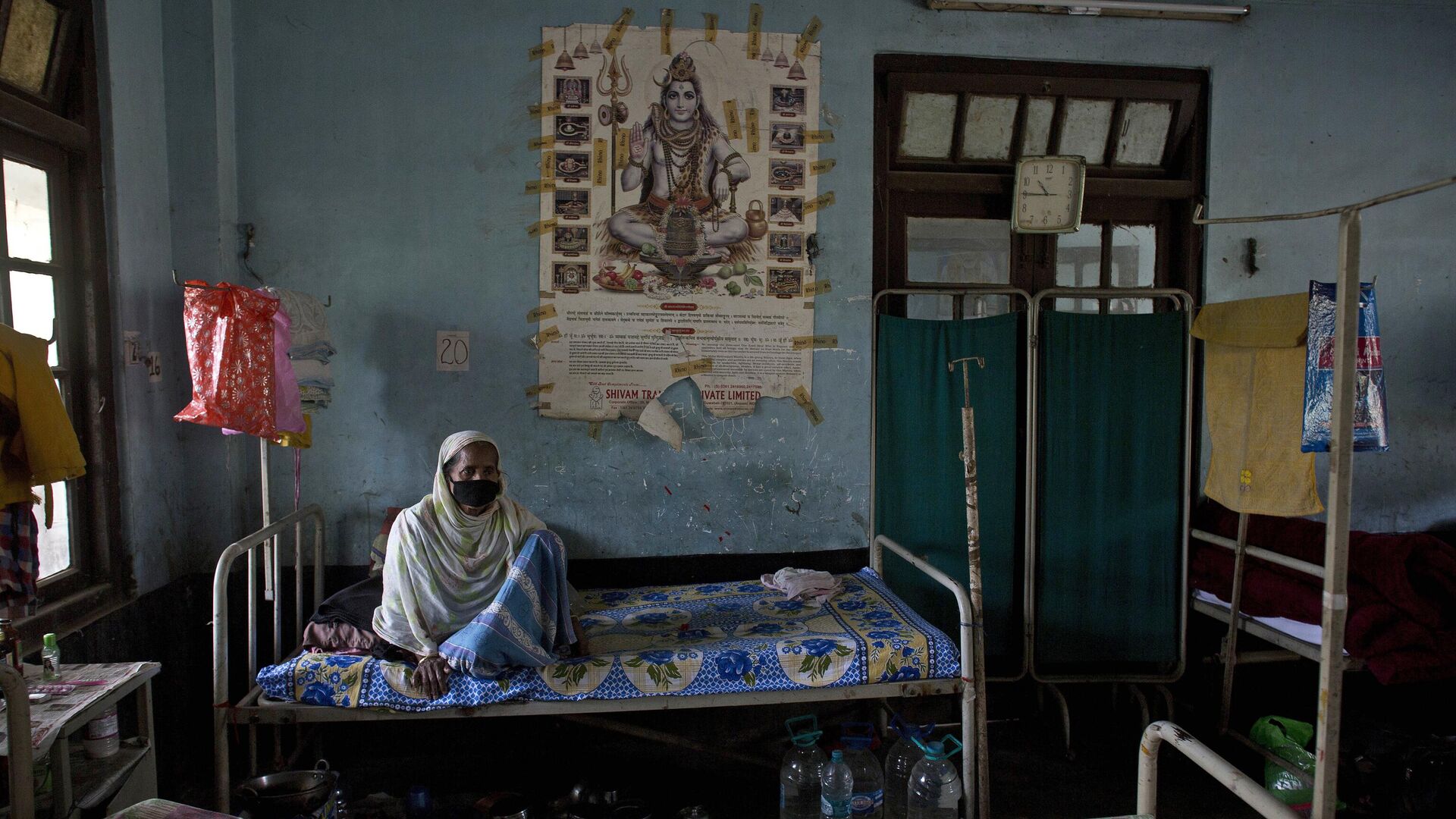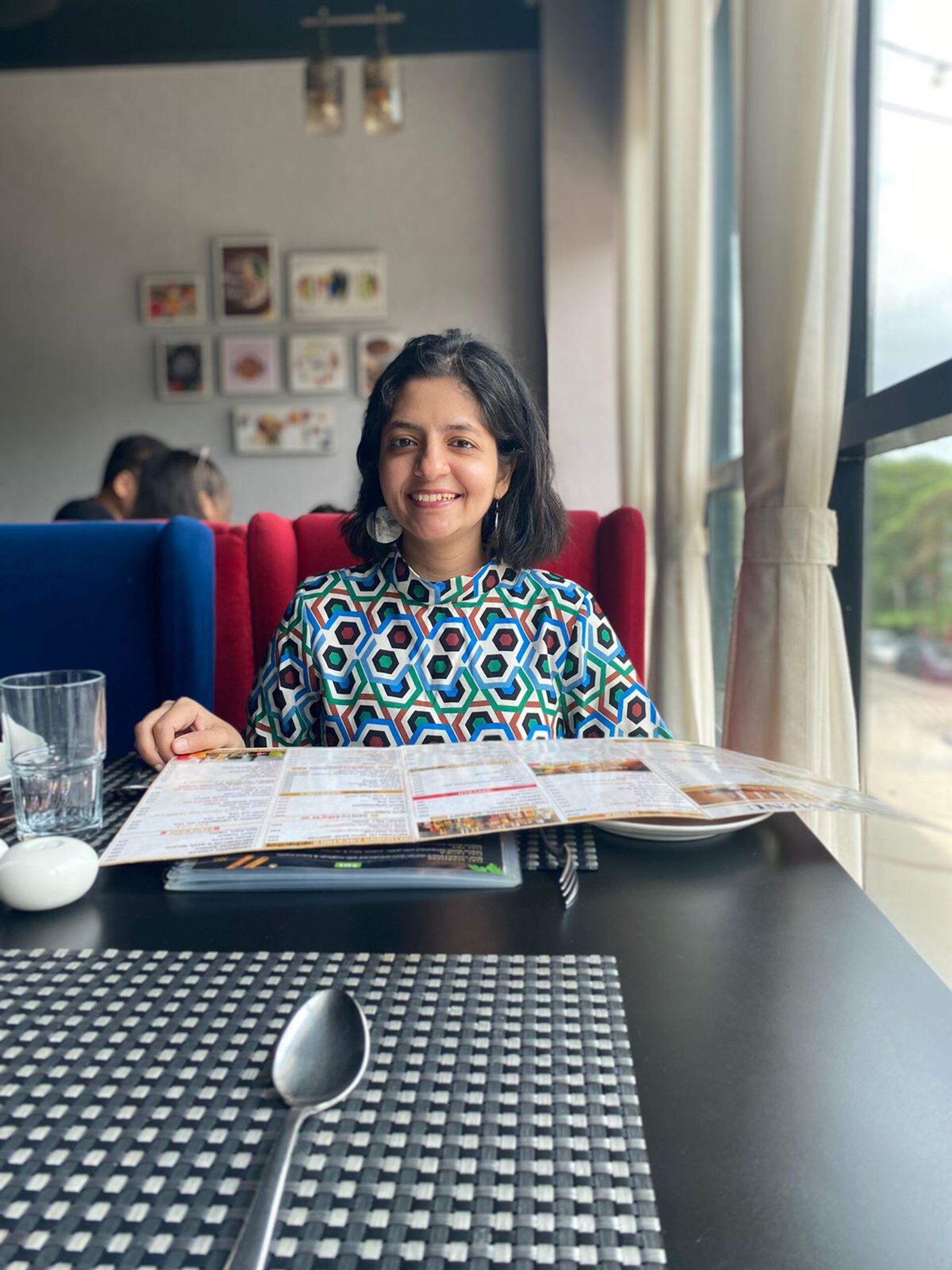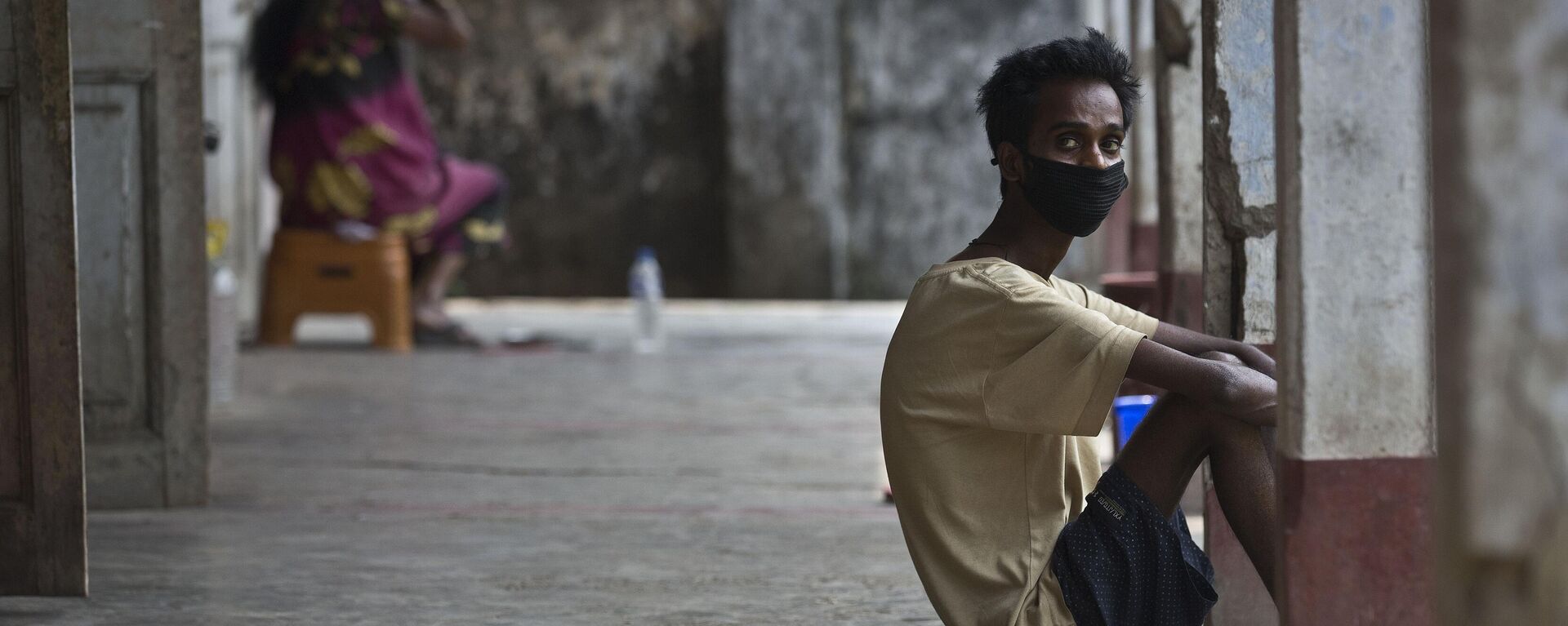https://sputniknews.in/20230328/why-india-rejected-renewal-of-johnson--johnsons-tuberculosis-drug-patent-1333017.html
Why India Rejected Renewal of Johnson & Johnson’s Tuberculosis Drug Patent
Why India Rejected Renewal of Johnson & Johnson’s Tuberculosis Drug Patent
Sputnik India
On Thursday, US-based pharma giant Johnson and Johnson's application for an extension of its patent on the anti-TB drug -- Bedaquiline was rejected by Indian Patents Office.
2023-03-28T16:25+0530
2023-03-28T16:25+0530
2023-03-29T09:25+0530
sputnik exclusives
india
health
health issues
health crisis
the world health organization (who)
tuberculosis (tb)
https://cdn1.img.sputniknews.in/img/07e7/03/1c/1336640_0:57:3073:1785_1920x0_80_0_0_46ea1d010163f3cb816fa684a14ca7cf.jpg
It turned out to be a big victory for tuberculosis (TB) survivors, Nandita Venkatesan from India, and Phumeza Tisile from South Africa, who filed for a patent opposition in 2019 against Johnson & Johnson’s (J&J) drug Bedaquiline designed to treat TB.TB is an infectious bacterial infection that spreads through the air from one person to another and attacks the lungs, and other parts of the body such as the brain, spine, and kidneys. According to the World Health Organization's (WHO) 2022 Global TB report, around 10.6 million people around the world were diagnosed with TB in 2021 - an increase of 4.5 percent from 2020 - and 1.6 million patients died of the disease.India accounted for nearly 29 percent of the total 10.6 million TB cases and was listed among the top eight countries, including Indonesia (9.2 percent), China (7.4 percent), the Philippines (7 percent), Pakistan (5.8 percent), Nigeria (4.4 percent), Bangladesh (3.6 percent), and the Democratic Republic of the Congo (2.9 percent).J&J Loses Monopoly in IndiaJohnson & Johnson’s Bedaquiline is one of the key drugs used for its treatment, which lasts between six months and two years.Last week, the Assistant Controller of Patents and Designs, Dr Latika Dawara, rejected the patent renewal of Bedaquiline in India on the grounds that it “did not meet the requirements of patent law”.A dancer and a journalist by profession, Nandita Venkatesan, who is now a TB champion, tells Sputnik the actual reasons for this rejection and why it is, in fact, a positive move for Indian pharmaceutical companies.Sputnik: After four years, you and another TB survivor, South African Phumeza Tisile, have finally managed to succeed in breaking the monopoly of J&J’s Bedaquiline TB drug in India. How does it feel?Nandita Venkatesan: It feels great! We have been getting a lot of congratulatory messages on social media from other TB survivors and those we have managed to help and touch the lives along the way. This is a big vindication and gratification we have received from the wider TB community.We strongly feel that when there are better drugs available for TB treatment, they should be made accessible and affordable to other patients so that no one else suffers like us because of toxic drugs and treatment regimes.Campaigning for Affordable TB TreatmentSputnik: You have said that Bedaquiline had become the backbone of most tuberculosis treatments. What prompted you and Tisile to file a patent opposition in 2019 against it?Nandita Venkatesan: There are two reasons: one is our own experience with the disease. Both of us are tuberculosis survivors and we had a very difficult and long journey at a young age with this disease because of the medicines which are very toxic and had a lot of side effects. We had to deal with a lot of difficulties and trauma - so much so that we ended up losing our hearing completely because of an injection which is part of the TB regimen.Second, in February 2019, when we filed this patent opposition, a few months back the WHO brought out its first recommendation about Bedaquiline. It said that Bedaquiline is a very effective and very strong drug and countries should increase its uptake, and include it in the TB treatments.So, when we realized that there was a lot of public funding involved in its R&D and production and also backing from the US government, the price should not be a barrier to making the drug available to TB patients.Sputnik: Despite Bedaquiline being the most expensive drug, how was the Indian government coping with this issue?Nandita Venkatesan: There have not been any generic companies that have managed to come and increase the supply or bring down the price.Because its prices are very high, the government has also been procuring it at a high price.Apart from that, there were major issues with its supply because there has been only one manufacturer. The medicine is only available through government centres and government hospitals.TB can, of course, hit everyone but people from the lower rungs of society are far more susceptible to the disease.Sputnik: What does this move mean to India and the local pharma companies?Nandita Venkatesan: I see it as a positive move for the Indian pharma companies. Because there have been some pharma companies such as Lupin who have already shown interest in manufacturing generic versions of Bedaquiline which will be more cost-effective for India and easily accessible to the patients.We feel that once there are more manufacturers, this will increase the supply and the prices will fall. It will become far cheaper for the government to procure the drug, and this will ultimately bring down the treatment cost as well.
https://sputniknews.in/20230324/modi-targets-tb-free-india-by-2025-launches-preventive-treatment-1296971.html
india
Sputnik India
feedback.hindi@sputniknews.com
+74956456601
MIA „Rossiya Segodnya“
2023
Sangeeta Yadav
https://cdn1.img.sputniknews.in/img/07e6/0c/0f/110602_0:0:641:640_100x100_80_0_0_c298016a79eb02ef8caa9d1f688c12a5.jpg
Sangeeta Yadav
https://cdn1.img.sputniknews.in/img/07e6/0c/0f/110602_0:0:641:640_100x100_80_0_0_c298016a79eb02ef8caa9d1f688c12a5.jpg
News
en_IN
Sputnik India
feedback.hindi@sputniknews.com
+74956456601
MIA „Rossiya Segodnya“
Sputnik India
feedback.hindi@sputniknews.com
+74956456601
MIA „Rossiya Segodnya“
Sangeeta Yadav
https://cdn1.img.sputniknews.in/img/07e6/0c/0f/110602_0:0:641:640_100x100_80_0_0_c298016a79eb02ef8caa9d1f688c12a5.jpg
tuberculosis, tb survivors, nandita venkatesan, phumeza tisile, south africa, patent opposition, johnson and johnson, drug, bedaquiline, tb treatment, world health organization, who, global tb report, diagnosed with tb, million patients died of the disease, why india rejected renewal of johnson & johnson’s tuberculosis drug patent? tuberculosis (tb) survivors,
tuberculosis, tb survivors, nandita venkatesan, phumeza tisile, south africa, patent opposition, johnson and johnson, drug, bedaquiline, tb treatment, world health organization, who, global tb report, diagnosed with tb, million patients died of the disease, why india rejected renewal of johnson & johnson’s tuberculosis drug patent? tuberculosis (tb) survivors,
Why India Rejected Renewal of Johnson & Johnson’s Tuberculosis Drug Patent
16:25 28.03.2023 (Updated: 09:25 29.03.2023) On Thursday, US-based pharma giant Johnson & Johnson's application for an extension of its patent on the anti-TB drug -- Bedaquiline was rejected by India's Patents Office.
It turned out to be a big victory for tuberculosis (TB) survivors, Nandita Venkatesan from India, and Phumeza Tisile from South Africa, who filed for a patent opposition in 2019 against Johnson & Johnson’s (J&J) drug Bedaquiline designed to treat TB.
TB is an infectious bacterial infection that spreads through the air from one person to another and attacks the lungs, and other parts of the body such as the brain, spine, and kidneys.
According to the World Health Organization's (WHO) 2022 Global TB report, around 10.6 million people around the world were diagnosed with TB in 2021 - an increase of 4.5 percent from 2020 - and 1.6 million patients died of the disease.
India accounted for nearly 29 percent of the total 10.6 million TB cases and was listed among the top eight countries, including Indonesia (9.2 percent), China (7.4 percent), the Philippines (7 percent), Pakistan (5.8 percent), Nigeria (4.4 percent), Bangladesh (3.6 percent), and the Democratic Republic of the Congo (2.9 percent).
J&J Loses Monopoly in India
Johnson & Johnson’s Bedaquiline is one of the key drugs used for its treatment, which lasts between six months and two years.
Last week, the Assistant Controller of Patents and Designs, Dr Latika Dawara, rejected the patent renewal of Bedaquiline in India on the grounds that it “did not meet the requirements of patent law”.
A dancer and a journalist by profession, Nandita Venkatesan, who is now a TB champion, tells Sputnik the actual reasons for this rejection and why it is, in fact, a positive move for Indian pharmaceutical companies.
Sputnik: After four years, you and another TB survivor, South African Phumeza Tisile, have finally managed to succeed in breaking the monopoly of J&J’s Bedaquiline TB drug in India. How does it feel?
Nandita Venkatesan: It feels great! We have been getting a lot of congratulatory messages on social media from other TB survivors and those we have managed to help and touch the lives along the way. This is a big vindication and gratification we have received from the wider TB community.
We strongly feel that when there are better drugs available for TB treatment, they should be made accessible and affordable to other patients so that no one else suffers like us because of toxic drugs and treatment regimes.
Campaigning for Affordable TB Treatment
Sputnik: You have said that Bedaquiline had become the backbone of most tuberculosis treatments. What prompted you and Tisile to file a patent opposition in 2019 against it?
Nandita Venkatesan: There are two reasons: one is our own experience with the disease. Both of us are tuberculosis survivors and we had a very difficult and long journey at a young age with this disease because of the medicines which are very toxic and had a lot of side effects. We had to deal with a lot of difficulties and trauma - so much so that we ended up losing our hearing completely because of an injection which is part of the TB regimen.
Second, in February 2019, when we filed this patent opposition, a few months back the WHO brought out its first recommendation about Bedaquiline. It said that Bedaquiline is a very effective and very strong drug and countries should increase its uptake, and include it in the TB treatments.
So, when we realized that there was a lot of public funding involved in its R&D and production and also backing from the US government, the price should not be a barrier to making the drug available to TB patients.
Sputnik: Despite Bedaquiline being the most expensive drug, how was the Indian government coping with this issue?
Nandita Venkatesan: There have not been any generic companies that have managed to come and increase the supply or bring down the price.
Because its prices are very high, the government has also been procuring it at a high price.
Currently, the government procures Bedaquiline from J&J at close to INR 20,000 ($243) per patient for a six-month course. Being such a key drug, INR 20,000 ($243) can be expensive for a disease that is known to strike people, especially in the lower strata of society.
Apart from that, there were major issues with its supply because there has been only one manufacturer. The medicine is only available through government centres and government hospitals.
TB can, of course, hit everyone but people from the lower rungs of society are far more susceptible to the disease.
Sputnik: What does this move mean to India and the local pharma companies?
Nandita Venkatesan: I see it as a positive move for the Indian pharma companies. Because there have been some pharma companies such as Lupin who have already shown interest in manufacturing generic versions of Bedaquiline which will be more cost-effective for India and easily accessible to the patients.
We feel that once there are more manufacturers, this will increase the supply and the prices will fall. It will become far cheaper for the government to procure the drug, and this will ultimately bring down the treatment cost as well.




